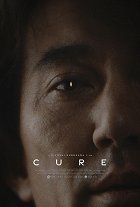Regie:
Kiyoshi KurosawaDrehbuch:
Kiyoshi KurosawaKamera:
喜久村徳章Musik:
ゲイリー芦屋Besetzung:
Kōji Yakusho, Masato Hagiwara, Yukijirō Hotaru, Ren Ōsugi, Tarō Suwa, Makoto Togashi, 田中哲司, 洞口依子, 大鷹明良, Masahiro Toda, Kae Egawa, Kae MinamiInhalte(1)
Ermittler Takabe steht vor einem Rätsel. Ein toter Körper in einem See von Blut, zwei Schnitte in X-Form vom Hals zur Brust, durchtrennte Hauptschlagadern. Alles ist genau so, wie bei den anderen Leichen, die er sich neuerdings ansehen muss. Klassischer Fall von Serienmord? Wenn es so einfach wäre! Die Täter werden jedesmal gefasst, so wie der Grundschullehrer Hanaoka, der seine Frau ermordet und sich dann aus dem Fenster stürzt. Oder Polizist Oida, der aus heiterem Himmel seinen Kollegen erschießt und ihn dann filetiert. Aber keiner von ihnen hat ein Motiv oder weiß, was ihn zur Tat getrieben hat. Auch einen Zeugen gibt es, aber der leidet anscheinend unter einer extremen Form von Amnesie. Ausgerechnet dieser Mann ohne Erinnerung scheint der Schlüssel zur Lösung dieses Rätsels zu sein. (Verleiher-Text)
(mehr)Kritiken (3)
A perfect Japanese mysterious thriller with a great atmosphere that builds up slowly, and an interesting story. The premise reminds me a little of one of the very good episodes of The X-Files (Pusher, from the third season). The ending, as in most Asian thrillers, left me flabbergasted – what is that supposed to mean? The Asians really know how to do ambiguous tension. And even though I prefer to know, or at least to guess, where I’m standing with a film, this approach also has something going on for it. Either way, this film is worth recommending, if only for its oppressive atmosphere.
()
The blazing little fish Dory on her way to your head... The oppressive noises, disturbing sounds, and interiors so stark that a prison cell almost looks the same as a detective’s kitchen. Kurosawa keeps the audience at a distance from the cold ellipse of violence and despair, and when he occasionally tries surrealism, he almost loses them. Kojī Yakusho, on the other hand, is drawn into the whirlwind of events and washing machines running empty, doing quite the opposite. Perhaps the waitress didn’t go to cut sushi at the end, did she?
()
Kiyoshi Kurosawa already intrigued me with his film Kairo, which was shot in a similarly depressive spirit. Cure, however, has a better, more interesting story and truly excels in its progression, which becomes darker and darker, weighing increasingly on the viewer until it culminates in a finale that really shakes them. If Japanese films were more accessible in Europe, perhaps we would finally understand that there's no reason to fear them, and instead we would realize why they are worth admiring.
()

